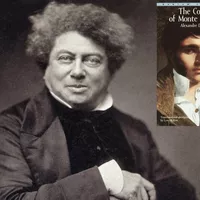Chapter 15. Number 34 and Number 27 (1)
Dantes passed through all the stages of torture natural to prisoners in suspense. He was sustained at first by that pride of conscious innocence which is the sequence to hope; then he began to doubt his own innocence, which justified in some measure the governor's belief in his mental alienation; and then, relaxing his sentiment of pride, he addressed his supplications, not to God, but to man. God is always the last resource. Unfortunates, who ought to begin with God, do not have any hope in him till they have exhausted all other means of deliverance.
Dantes asked to be removed from his present dungeon into another; for a change, however disadvantageous, was still a change, and would afford him some amusement. He entreated to be allowed to walk about, to have fresh air, books, and writing materials. His requests were not granted, but he went on asking all the same. He accustomed himself to speaking to the new jailer, although the latter was, if possible, more taciturn than the old one; but still, to speak to a man, even though mute, was something. Dantes spoke for the sake of hearing his own voice; he had tried to speak when alone, but the sound of his voice terrified him. Often, before his captivity, Dantes' mind had revolted at the idea of assemblages of prisoners, made up of thieves, vagabonds, and murderers. He now wished to be amongst them, in order to see some other face besides that of his jailer; he sighed for the galleys, with the infamous costume, the chain, and the brand on the shoulder. The galley-slaves breathed the fresh air of heaven, and saw each other. They were very happy. He besought the jailer one day to let him have a companion, were it even the mad abbe.
The jailer, though rough and hardened by the constant sight of so much suffering, was yet a man. At the bottom of his heart he had often had a feeling of pity for this unhappy young man who suffered so; and he laid the request of number 34 before the governor; but the latter sapiently imagined that Dantes wished to conspire or attempt an escape, and refused his request. Dantes had exhausted all human resources, and he then turned to God.
All the pious ideas that had been so long forgotten, returned; he recollected the prayers his mother had taught him, and discovered a new meaning in every word; for in prosperity prayers seem but a mere medley of words, until misfortune comes and the unhappy sufferer first understands the meaning of the sublime language in which he invokes the pity of heaven! He prayed, and prayed aloud, no longer terrified at the sound of his own voice, for he fell into a sort of ecstasy. He laid every action of his life before the Almighty, proposed tasks to accomplish, and at the end of every prayer introduced the entreaty oftener addressed to man than to God: "Forgive us our trespasses as we forgive them that trespass against us." Yet in spite of his earnest prayers, Dantes remained a prisoner.
Then gloom settled heavily upon him. Dantes was a man of great simplicity of thought, and without education; he could not, therefore, in the solitude of his dungeon, traverse in mental vision the history of the ages, bring to life the nations that had perished, and rebuild the ancient cities so vast and stupendous in the light of the imagination, and that pass before the eye glowing with celestial colors in Martin's Babylonian pictures. He could not do this, he whose past life was so short, whose present so melancholy, and his future so doubtful. Nineteen years of light to reflect upon in eternal darkness! No distraction could come to his aid; his energetic spirit, that would have exalted in thus revisiting the past, was imprisoned like an eagle in a cage. He clung to one idea--that of his happiness, destroyed, without apparent cause, by an unheard-of fatality; he considered and reconsidered this idea, devoured it (so to speak), as the implacable Ugolino devours the skull of Archbishop Roger in the Inferno of Dante.

